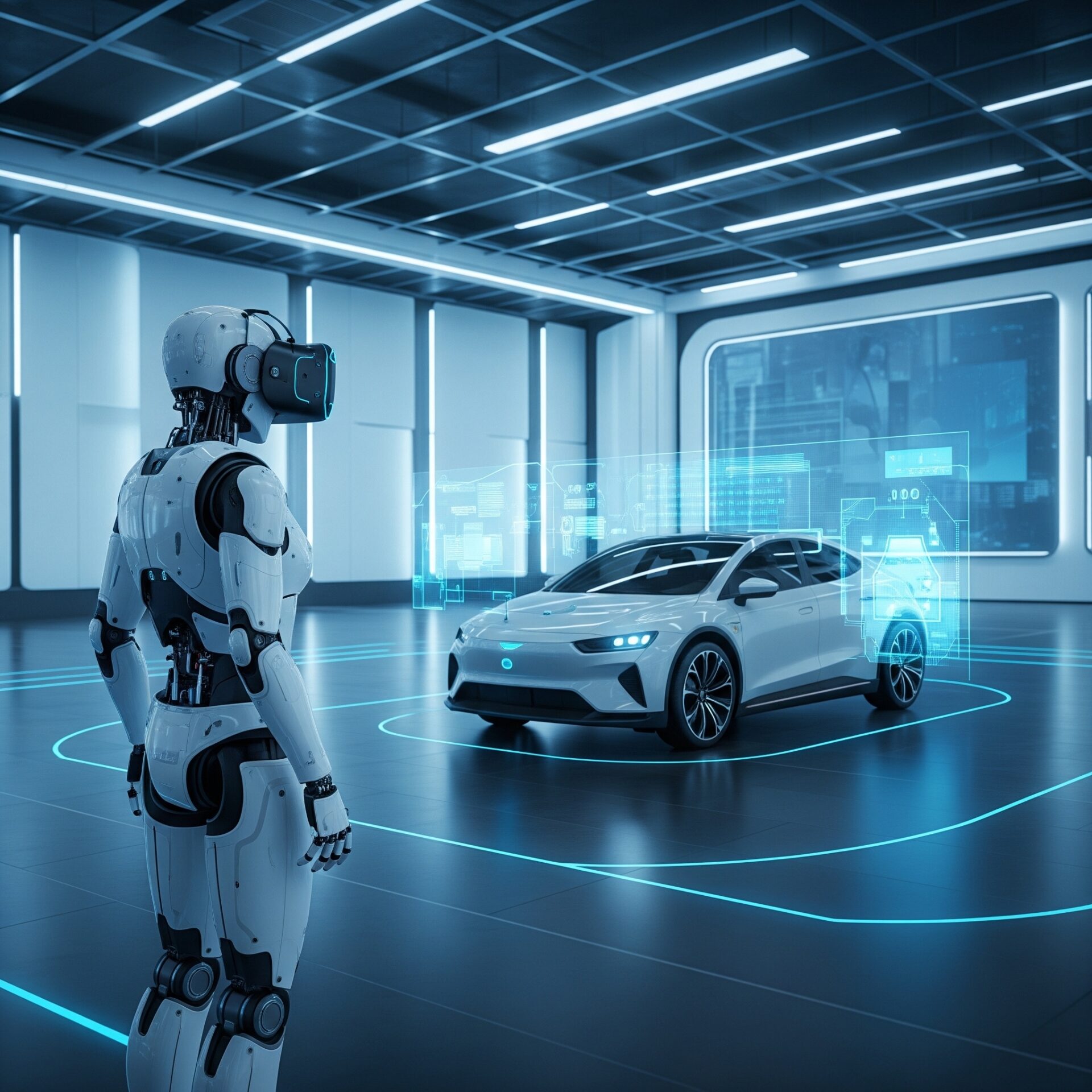Immersive virtual environments are gaining recognition as the next-generation learning platform for robotics and autonomous driving AI, marking a significant revival in metaverse technology’s practical value.
The metaverse, which had been overshadowed by the generative AI boom, is making a spectacular comeback as a crucial training platform for physical AI systems. This innovative application model, combining the limitless experimental possibilities of virtual worlds with real-world physics, is transforming industry paradigms across sectors.
Unlimited Simulation Revolutionizes AI Learning
NVIDIA’s Omniverse platform is setting new standards for physical AI development. Through integration with the Cosmos platform, autonomous vehicles and industrial robots can now undergo unlimited repetitive learning in virtual environments for scenarios that would be dangerous or prohibitively expensive in reality. AI systems can simulate tens of thousands of scenarios—blizzards, torrential rain, complex traffic situations, unexpected obstacles—around the clock, continuously refining their decision-making capabilities.
Human motion data captured by Apple’s Vision Pro, including subtle hand movements and body gestures, is being directly utilized to implement natural robotic movements. This goes beyond simple motion mimicking, laying the foundation for next-generation robots that can understand human intentions and emotions.
98% Accuracy Achievement Demonstrates Virtual Training Power
Siemens’ breakthrough case showcases the tangible results of metaverse-based AI training. The Simatic Robot Pick AI system, after repeating millions of picking operations in virtual simulations, has achieved the ability to handle diverse product types with 98% accuracy—completely surpassing traditional standardized patterns. This remarkable performance results from massive-scale repetitive learning and instantaneous feedback systems impossible in the physical world.
New Interface Ecosystem Merging Reality and Virtual Worlds
XR devices and digital human technology are dramatically enhancing AI’s real-world perception capabilities. AI systems collect real-time environmental data through XR device sensors while learning natural human-AI interaction methods through digital human avatars. This multimodal interface serves as the foundation for AI evolution beyond simple data processing toward genuine ‘companions’ that can read and respond to emotions and intentions.
Metaverse Innovation Accelerates Autonomous Operation Era
Metaverse-AI convergence technology is accelerating autonomous decision-making system implementation across all industries—from urban planning to healthcare, defense, manufacturing, and education. The realization of fully autonomous operating systems, where AI performs complex situational judgment and real-time decision-making beyond simple analysis and prediction, is becoming reality.
The Software Policy Research Institute evaluates that “the metaverse is establishing itself as a core tool for enhancing AI’s real-world adaptation capabilities, serving as a catalyst for advanced robotics technology development.” The metaverse stands at a turning point, being redefined from its past focus on gaming and entertainment into core infrastructure for the AI revolution.

